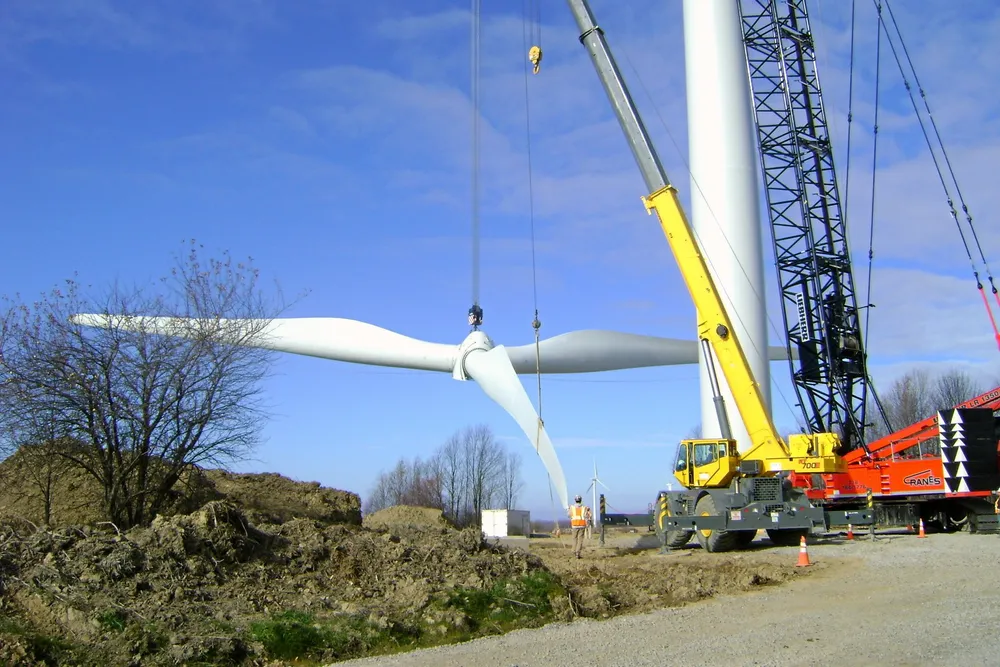Clean energy firms axe $8bn US investment in Q1 amid doubts over Trump policies
Non-partisan group E2 warns more projects at risk on horizon 'if this self-inflicted and unnecessary market uncertainty continues'

Companies abandoned plans to invest almost $8bn in US clean energy-related factories and other projects in the first quarter amid escalating market uncertainty, according to latest data from E2, a national, non-partisan clean energy group.
Most projects were either cancelled or downsized, or in several cases, existing plants due for expansion or upgrade were closed. About 7,800 new jobs were lost.
Projects affected included five battery/storage, five electric vehicle (EV), two hydrogen, three solar, and one wind, Prysmian’s proposed offshore cable manufacturing facility in Massachusetts.
“Clean energy companies still want to invest in America, but uncertainty over Trump administration policies and the future of critical clean energy tax credits are taking a clear toll,” said Michael Timberlake, communications director at E2.
“If this self-inflicted and unnecessary market uncertainty continues, we’ll almost certainly see more projects paused, more construction halted, and more job opportunities disappear,” he added.
The lost projects were partly offset by $1.6bn in announced new projects headlined by Tesla’s $200m commitment to build a battery factory near Houston and T1’s $850m solar cell manufacturing plant in Texas.
E2’s data tracks $133bn in planned project investments in 42 states and Puerto Rico.
Since taking office 20 January, President Donald Trump has issued directives and adopted policies that promote use of fossil fuels for electric power generation and transportation, while seeking to frustrate EV and renewable energy development, particularly offshore wind.
Republican majority leaders in Congress have not clarified their intentions for the Inflation Reduction Act (IRA), the sweeping August 2022 climate law that passed without their support.
The law provides long-term federal tax credits for multiple clean energy-related generation and manufacturing activities, although some are applicable to sectors such as mining and processing of critical minerals that have applications throughout the broader $28trn national economy.
Trump has been critical of IRA’s tax credits for EVs and wind, although he appears to support those for manufacturing of electrical equipment and other constituencies he cares about, and nuclear energy.
Some, perhaps most, Republican lawmakers have indicated support for IRA provisions covering carbon capture and storage, clean fuels, and nuclear energy.
The emerging party consensus appears to coalesce around early sunset of the technology-neutral clean energy tax credit, perhaps by 2027 versus 2032 at the earliest, elimination of EV tax credits, and new project tax credit eligibility requirements that they use products made here.
These could be minimum IRA changes made in new legislation to help pay for the extension of Trump’s tax cuts passed by Congress in 2017.
Republican lawmakers are seeking deep government spending cuts to offset the Tax Cuts and Jobs Act extension, a move that would decrease federal revenues by $4.5trn, according to the Tax Foundation, a non-partisan research group.
(Copyright)